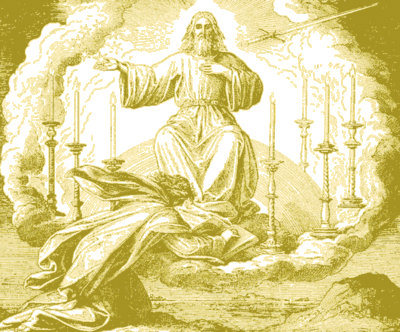Q: Why does the Bible say “Son of Man” when speaking of Jesus? Sometimes it says Son of God which makes more sense to me. I hope you can answer this questions for me. I haven’t had any luck so far.
A: The answer is twofold. First of all, the Scriptures call Jesus the Son of Man to remind us that He is true man, born of the Virgin Mary, even as He is also true God.
This title also echoes the vision of Daniel, who saw the one like the Son of Man with the Ancient of Days. By naming Himself the Son of Man so regularly, especially in Matthew and Mark’s accounts, Jesus called to mind what was foretold in Daniel’s vision: “Behold, with the clouds of heaven there came one like a Son of Man, and he came to the Ancient of Days and was presented before him. And to him was given dominion and glory and kingdom, that all peoples, nations, and languages should serve him; his dominion is an everlasting dominion, which shall not pass away, and his kingdom one that shall not be destroyed. (7:13-14)” This picture is expanded, more fully developed, and applied to Jesus in Revelation 1 (see below).

When Jesus called Himself the Son of Man, He identified Himself as this radiant Being seen by Daniel. Doubtless, Jesus’ disciples were caught up in the glorious aspects of this revelation. The Lord, however, neatly connected the Son of Man with the Suffering Servant of Isaiah, and wouldn’t accept the glory due the sinless Son of God until enduring the shame and pain due sinful man.
Small wonder that the disciples had trouble each time Jesus told them that the Son of Man would be delivered into the hands of those who’d put Him to death. Perhaps the strongest example is in Mark 8, where after Peter confessed Jesus as the Christ, the Lord immediately began telling them that “the Son of Man must suffer many things (v. 31),” and Peter quickly tried to correct Jesus. However, Christ responded by calling Peter “Satan (v. 33)” and continued by emphasizing the sacrificial purpose of His incarnation.
Similar statements by Jesus occur in Mark 9:2-13, 30-32 and 10:32-34. Immediately following this final graphic prediction of His impending Passion, James and John showed how much they’d been instead focusing on the glory, begging Him, “Grant us to sit, one at your right hand and one at your left, in your glory. (v. 37)” The reaction of the others in the following verses shows how all of the Twelve completely misunderstood the mission of the Messiah.
After His suffering and death, Jesus did assume the glory due the Son of Man. We receive a glimpse of this in Revelation 1:12-20, when John first saw the ascended Savior and in 14:14-20, where the Son of Man judges the earth by the stroke of His sickle.
Mark D. Roberts develops some of this thought further in an interesting series of articles which ask and answer the question, Was Jesus Divine?
Scripture quoted from The Holy Bible, English Standard Version™, © 2001 by Crossway Bibles.
Send email to Ask the Pastor.
Walter Snyder is the pastor of Holy Cross Lutheran Church, Emma, Missouri and coauthor of the book What Do Lutherans Believe.
Very interesting.
ReplyDelete